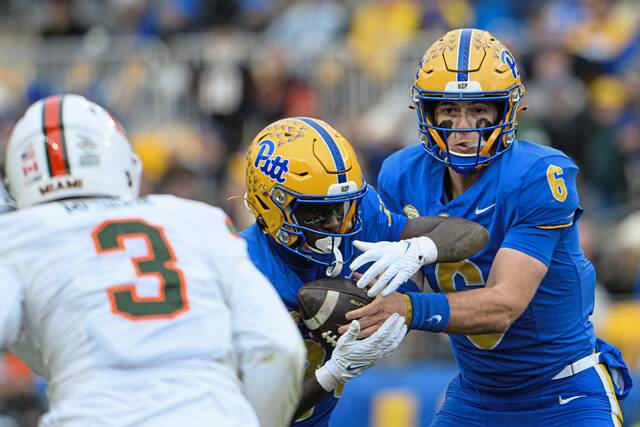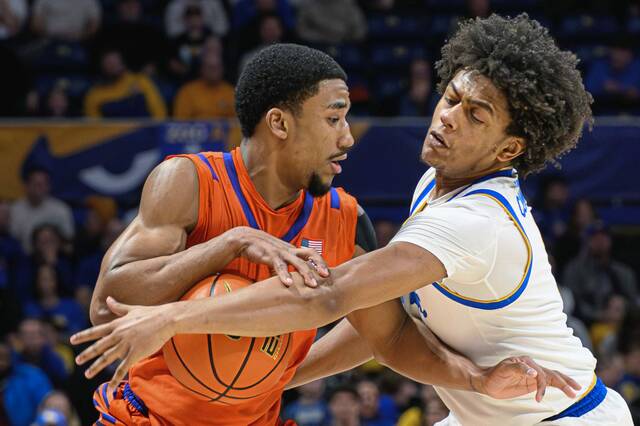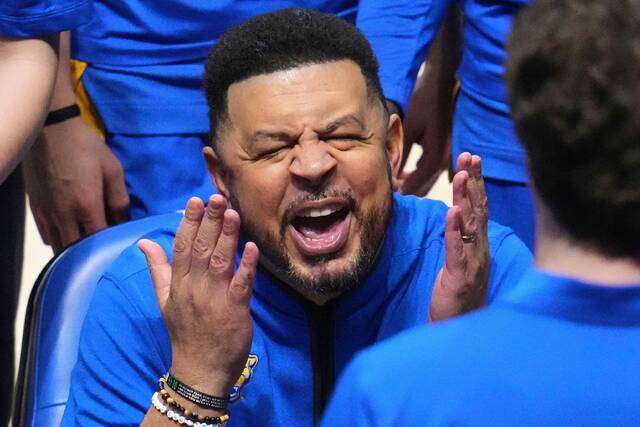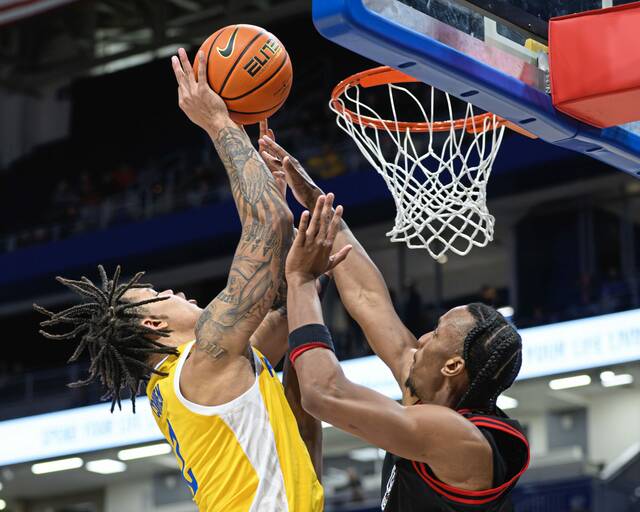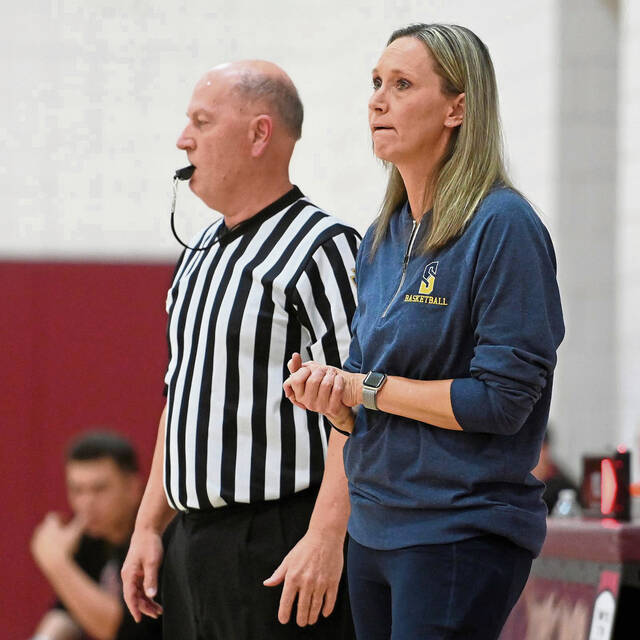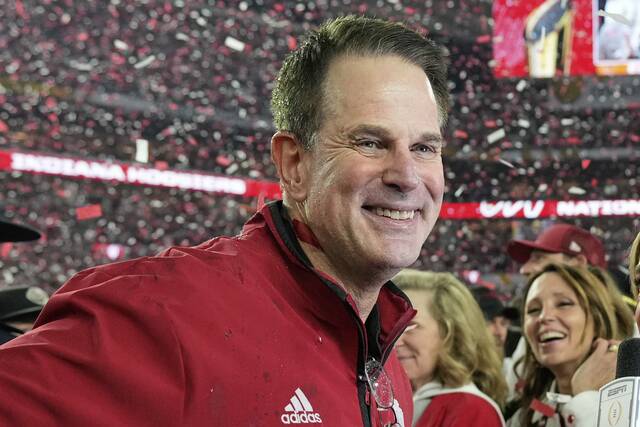In his role as Pitt’s running backs coach, Andre Powell likes to create real-life situations to illustrate what it takes to succeed in college football.
Not long ago, he gathered his backs in their meeting room and asked freshman T.J. Harvison to get on the board and draw everyone’s assignment on a power running play.
“Not even close,” Powell said of Harvison’s efforts. (Of course, Powell understands that Harvison was still in high school in Carrolton, Ga., as recently as last December.)
Then, Powell summoned redshirt senior Daniel Carter to the board. Carter is approaching his fifth season at Pitt.
“Daniel coached the play like a coach,” said Powell, a nine-year Pitt assistant. “He talked about going to the backside. He talked about the gap. He talked about the guard pulling, inside leverage, the fullback where he’s supposed to be.
“I told T.J., three years ago, (Carter) couldn’t do that.”
Now?
“Daniel may be one of the smartest guys I’ve been around,” Powell said.
Asked to estimate the value of having a player with that type of experience and knowledge, Powell added, “I don’t know if you can put a price tag on it.”
The challenge this spring is to replace Izzy Abanikanda’s 1,431 rushing yards and 20 touchdowns.
To that end, Rodney Hammond Jr. is becoming more of a football player than a mere runner in his third season. He brings with him 964 yards and 10 touchdowns over the past two seasons and the trust he has built with his position coach.
“The one thing that gives me the most confidence about Rodney is his maturity and his overall knowledge of our system and football in general,” Powell said, explaining that also involves knowing what the defense is trying to do.
He explained how Abanikanda “would just run” two years ago.
“He’d run in our guys’ backs. He’d run in the wrong hole.”
Eventually, he learned where he should go, based on the defense. He also understood that it’s not always necessary to hit “a home run.”
“Sometimes, a 3-yard run is a good run,” Powell said.
Hammond is on that track, his coach said.
“Now, listen,” Powell warned. “Rodney’s DNA is different than Izzy’s DNA. Izzy is 217 pounds, ran a 4.3 40 and a (jumped) 41 (inches, at Pro Day on Wednesday). I’m not for sure Rodney is that, but Rodney is a talented back, and he’s gotten a lot better.”
In the first moments of Thursday’s practice, Hammond was off by himself, punching tackling dummies while working to improve his pass blocking.
“That’s a hole in his game right now,” Powell said. “He has to learn how to protect the quarterback.”
But there’s no questioning Hammond’s ability to break tackles and keep his legs churning. His only impediment to more playing time last season was Abanikanda’s presence.
Powell said Hammond asked during games, “Coach, am I going in?”
Powell’s response: “You want me to take that dude out?”
“It wasn’t a knock on Rodney. Izzy was such an impressive performer. Two years ago, in (former offensive coordinator Mark) Whipple’s offense, Rodney was a change-of-pace back. We put him in in the second quarter when (the defensive players) were a little bit worn out. We put him in to close out games in the fourth quarter.
“Rodney is a tough dude. Rodney has a knack when everybody thinks he’s stopped, he’s not. He always finds a way to get 2 or 3 more yards. That’s one of the things that makes him special.”
Behind Hammond are Carter; Harvison; C’Bo Flemister, a senior who ran for 221 yards and two touchdowns last season; LSU transfer Derrick Davis Jr.; and Montour graduate and walk-on Caleb Williams.
Davis, a Gateway graduate, was a safety at LSU until the final two games last season. Pitt has plenty of depth at safety, so Davis was recruited as a running back.
“Derrick’s got a ways to go,” he said. “Is he talented? Yeah, he’s really talented, but he has to learn.”
Harvison will attempt to wedge among all those backs.
“T.J. is a hard worker. He’s trying really hard,” Powell said. “There’s so much volume. We have so many plays, so many adjustments. It is a lot.
“It is beginning to slow down a little bit for him. He’s got some High School Harry things we’re trying to break him out of. You can’t just run around the edge every time. He has to stick it in there and run vertical. But he’s getting better.”
The bottom line is Powell wants his players to treat college football as they would a career.
“It’s not (just) a job,” he said. “I explain it to them if you’re a postal worker — obviously, there’s nothing wrong with being a postal worker — but when you go home at 5 o’clock, you’re done.
“But if you’re a doctor, that’s a career. When a doctor goes home at night, he’s researching. He’s talking to the other doctors.”
The time players spend outside mandatory practice hours, working on their own, often quickens the learning process.
Powell said much of Carter’s free time is spent working with the younger players. Yet his greatest value is as a back who can man multiple positions.
“Daniel is like an adjustable wrench,” Powell said. “He can do anything in the backfield and some things on the line that the tight ends do.”
Said Carter: “I feel like I can do a lot of stuff that other backs can’t. I feel like I can do a lot.”
But he said he doesn’t pester coaches for more playing time.
“Not too much. When my number’s called, I’m ready to play.”



